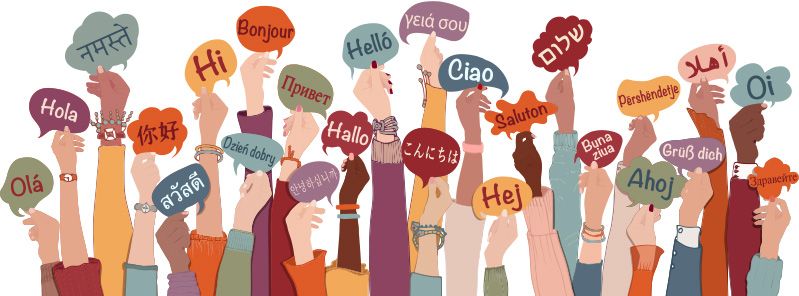Los Angeles as a Multicultural City: Perspectives
The view on the street is of a rapidly evolving city, that The New York Times recently called “a microcosm of the world,” where its residents speak more than 200 languages and live next to one another in relative peace, marry across racial groups and eat each other’s foods regularly.
But this diversity and coexistence seems to have outpaced its government’s current capacity to figure out how to wield and manage power, as shown by the recent scandal of the recordings. In the explosive audios, Latino leaders depicted their natural desire for representation as a zero-sum game and racist views were expressed about several different ethnic groups, including their own.
Ethnic Media Services held a panel discussion, Oct. 21, with four voices from the African American, Mexican American, and Indigenous Oaxacan communities to discuss how Los Angeles can move on from this impasse.
Speakers included – Richard Rodriguez, Journalist and Writer, Author of “Brown: The Last Discovery of America” and “Hunger of Memory, the Education of Richard Rodriguez”; Erin Aubry Kaplan, Journalist and Author, has written for the LA Times, The New York Times, the LA Weekly, Essence, and many other publications; Arcenio López, Executive Director, MICOP, Mixteco Indígena Community Organizing Project; and Jasmyne Cannick, Advocate, Writer and Political Strategist.

What were your first thoughts when you heard the tape and how has the wider community reacted?
“I was upset, I was sad, we were afraid because we know about these racist feelings that exist among Mexicanos Latinos. As indigenous individuals myself I have experience this type of racism discrimination and we see that on daily basis. I couldn’t really like process that it was coming from those individuals who hold positions of power, who were elected thinking that there were individuals really representing the diversity of, in this case, the city of Los Angeles. “We’re not willing to transform the system we carry in our narratives as Latinos Hispanic movements of this system of oppression,” said Cannick.
“After the Rodney King riots in 1992, in which I argued rather faithfully but truly, that Los Angeles was just being born. For the first time in my experience, the city was aware of being whole in terror as people were afraid of each other and that Olympic Boulevard extended into neighborhoods that one had never been in before. If you live in the west side or vice versa and I thought the optimism I’ve had in those years was the city in fear was forming itself as a city. “Now 30 years later we’re dealing with this ‘Scandal of City Hall’ which when I heard, it seemed to me to stand all the platitudes of the liberal left on its head.
“We’ve been arguing in favor of multiculturalism, multi-racial identity, and so forth, and here were was a conversation with laughter in City Hall in which every group of LA got picked on by these three laughing voices and it became a kind of multi-racial racism that it was that so they were turning the platitude being relatively racial on its head and they were marking African Americans, Native Americans, the Jewish, west side and so forth, but they were describing the multi-racial city, but hatefully and darkly.
“I thought that was interesting that we were hearing the vision that I had proposed 30 years ago, but here we were hearing it backwards. We were hearing people describe God, multi-racial city, but with grievance and obviously despite their laughter, it was clear to me that they were at war with the rest of Los Angeles.
“They wanted their piece of the party and at a time when the country is obsessed with states like Alabama and Louisiana, and the attempts by white Republicans to marginalize the black vote, it seemed to me that Los Angeles was mimicking the worst impulse in our national politics,” said Rodriguez.
“I felt two things when I heard the audio. I think of my father, Larry Aubry, who also worked very hard to make meaningful coalition with all ethnic groups in the city because he knew that was necessary. He came at it from a black perspective, but he always said the power sharing was a very difficult thing because groups didn’t necessarily agree on what they wanted from each other.
“I was not too surprised. The deeper question was how is it going to impact African Americans? We don’t fare well with immigrant groups. There was a sense of being displaced and it was not over hostility towards Latinos, it was unflattering comparison,” said Kaplan.
How do you make sure that communities are represented?
“I want to remind people that you don’t have to be of a certain race to be able to represent all community. There are no black districts and in the County of Los Angeles. The same can be said um for other groups of all public office, so this idea that you could only be Latino to care about Latino interest, I will not agree with because I see the opposite of that in other folks who are elected,” said Cannick.
“It’s about understanding our history, understanding about the shifting the narrative when it comes down to immigrants.
“We fall into this whole thing about colorism.
“The lighter your skin color, the better.
“You don’t learn that in the school system, you learn the opposite because the curriculum in schools is being developed from very wide perspective. We need to undo those, and I don’t really feel that we have done enough to put attention to that. A result we develop individuals that we are discussing about, the ‘Scandal,’ said López.
“I was raised within an Indian family that is in East Asian Indian family. I didn’t have a sense of myself as Mexican as much as I knew that I was connected somehow to India, to its food, to its history, to its culture, to its music, and that there was never walking down the street in Sacramento with my uncle who was very dark-skinned and he was yelled at one day by a passing a teenager with this red skin from acne. He stuck his head out the window and yelled at my uncle, who was almost back.
“He called him names and my uncle acted, walked straight ahead. My uncle who’s a dentist walked straight ahead but I thought to myself, ‘you know my father was never assaulted verbally that way, he was a light-skinned Mexican,’ and there was always that sense that there were people living a complicated America who are not Mexican Americans, most prominently in my high school years,” said Rodriguez.
How do we move forward from this what do you want to see changed in terms of Institutions?
“Allow ourselves to have honest conversations about this situation including black and brown relations even when those conversations are uncomfortable. We need to be able to have honest conversations with each other about what is happening in our communities,” said Cannick.
“I think it’s difficult for us to see hopes, or to see the positive side of it. We’re putting on the public about the need or start creating courageous conversations and accept that internal race system needs to be dealt with,” said López.


